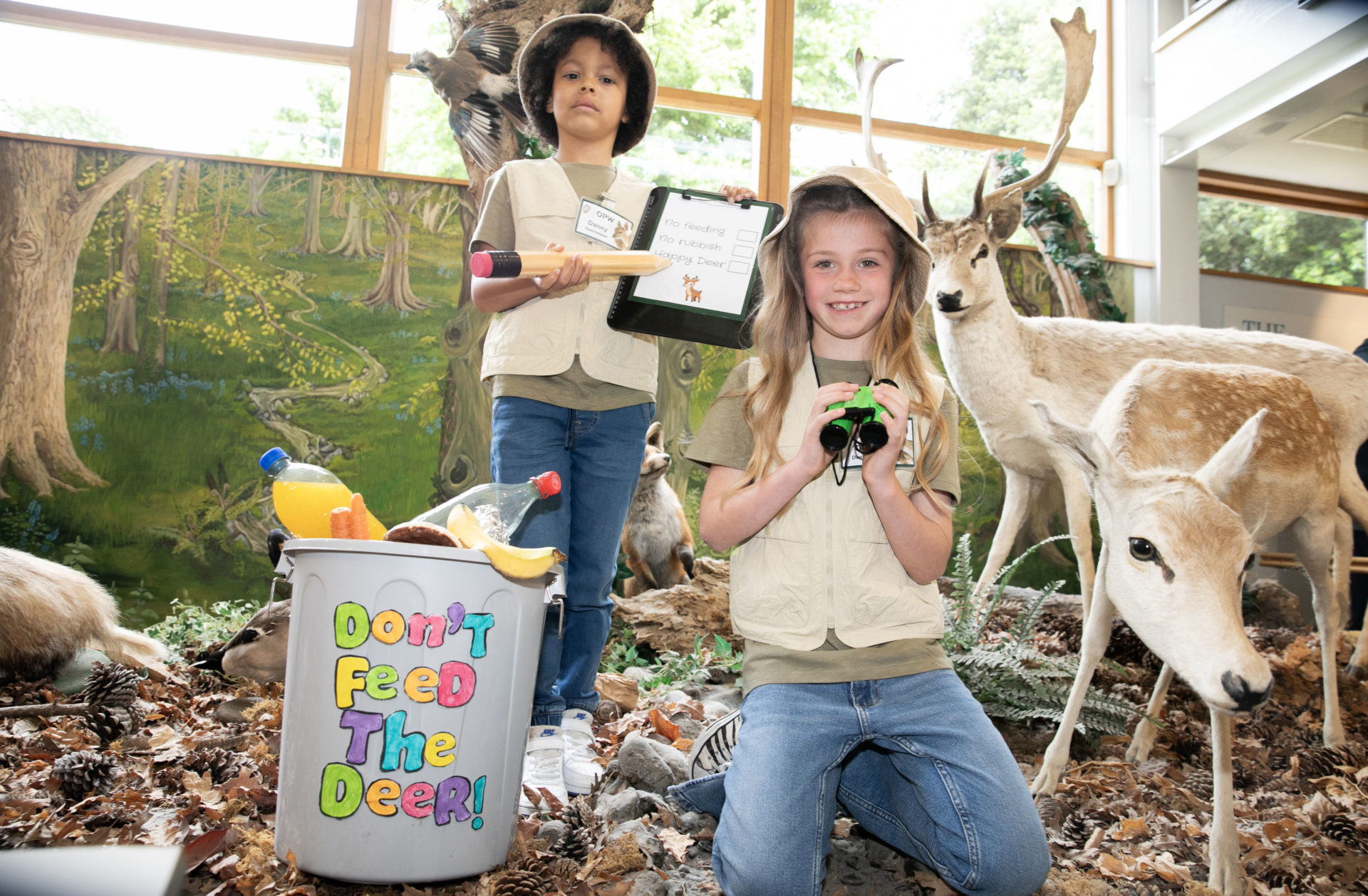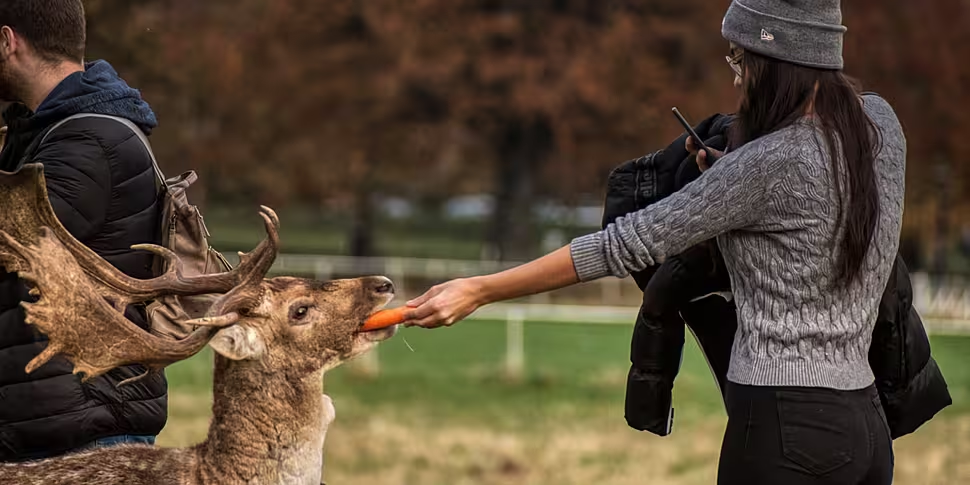Deer in Phoenix Park could start acting like seagulls if people keep feeding them, campaigners have warned.
The ‘Don’t Feed the Deer’ campaign launched in Phoenix Park earlier today, aimed at changing public behaviour to protect the park’s four-legged residents.
A report by University College Dublin (UCD) and the Office of Public Works (OPW) found that feeding the animals has had negative ‘behavioural and physiological impacts’.
PhD researcher Jane Faull was involved in the study – and said deer can become more ‘unpredictable’ if their diets remain disrupted.
“Because they’re having a higher-than-normal sugar diet, their stomachs have actually changed shape, which affects the way they’re able to take food from their own diet,” she said.
According to the report, deer are also “showing more stress behaviour”, including herding together more and increased fighting.
Deer or seagull?
Roughly 25% of the herd is now “begging” for food from people in the park, according to Ms Faull.
She warned that the number can increase “very quickly” - changing deer’s behaviour completely.
“If you think about when you try to eat a sandwich in Stephen's Green, you’re going to be absolutely bombarded by seagulls,” she said.
“[Deer] could become an absolute nuisance if they keep coming up to you and sticking their heads in your bag or pocket looking for food.
“We want people to be safe and we want deer to be safe.”
 Danny Ricketts, 5, and Olivia Doyle, 7, in Phoenix Park as part of the 'Don't Feed the Deer' Campaign, 18/06/2024. Image:Gareth Chaney
Danny Ricketts, 5, and Olivia Doyle, 7, in Phoenix Park as part of the 'Don't Feed the Deer' Campaign, 18/06/2024. Image:Gareth ChaneyThe OPW are advising people against feeding deer foods such as chocolate, crisps, fizzy drinks and bread.
‘Healthy’ foods such as carrots, apples and nuts are also off-limits – and Ms Faull said the only appropriate food for the animals is their ‘natural diet’ of grass.
Deer who accept ‘artificial food’ has several physical changes, such as mothers giving birth to heavier fawns and male deer having smaller antlers.
Some of the herd have also tested positive for COVID-19 in Phoenix Park, according to the OPW, suggesting people may have ‘passed this disease to them’ through food.
“I've seen someone put a carrot in their mouth and the dear [eat the carrot] from the other end,” Ms Faull said.
Visitors at the park should keep at least 50 metres away from deer and not engage in risky behaviour, such as feeding or trying to take selfies.









